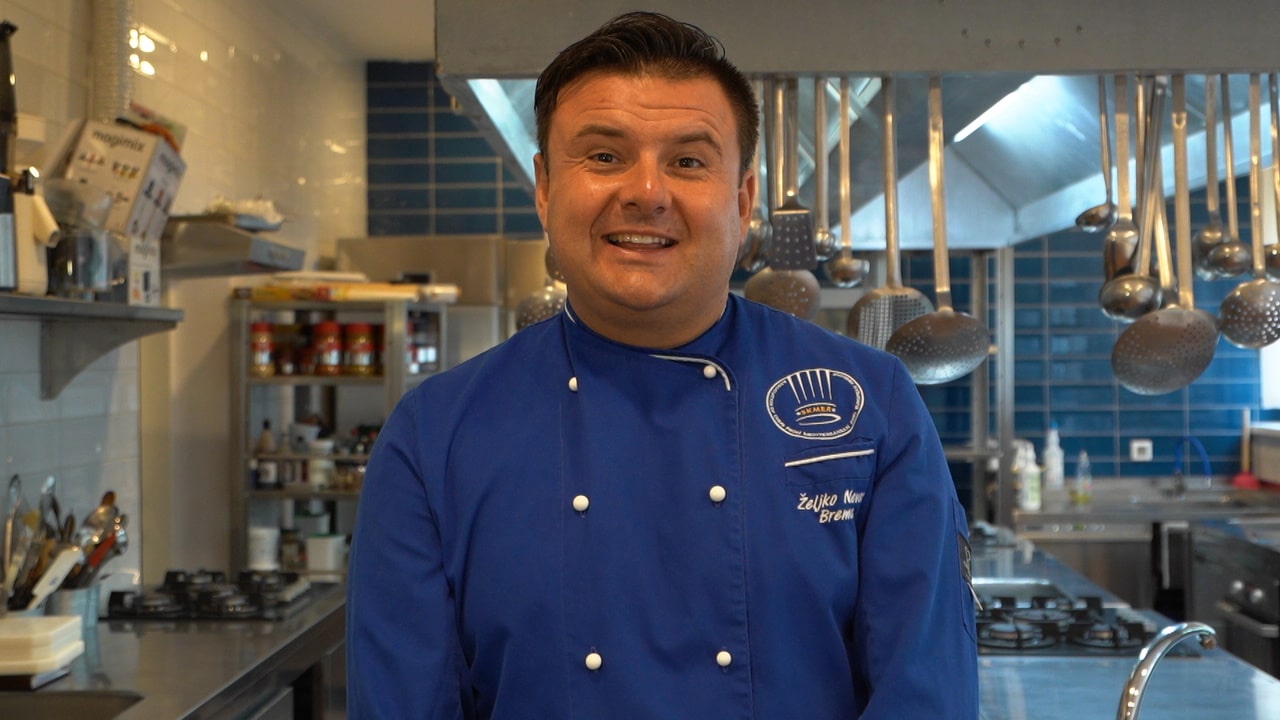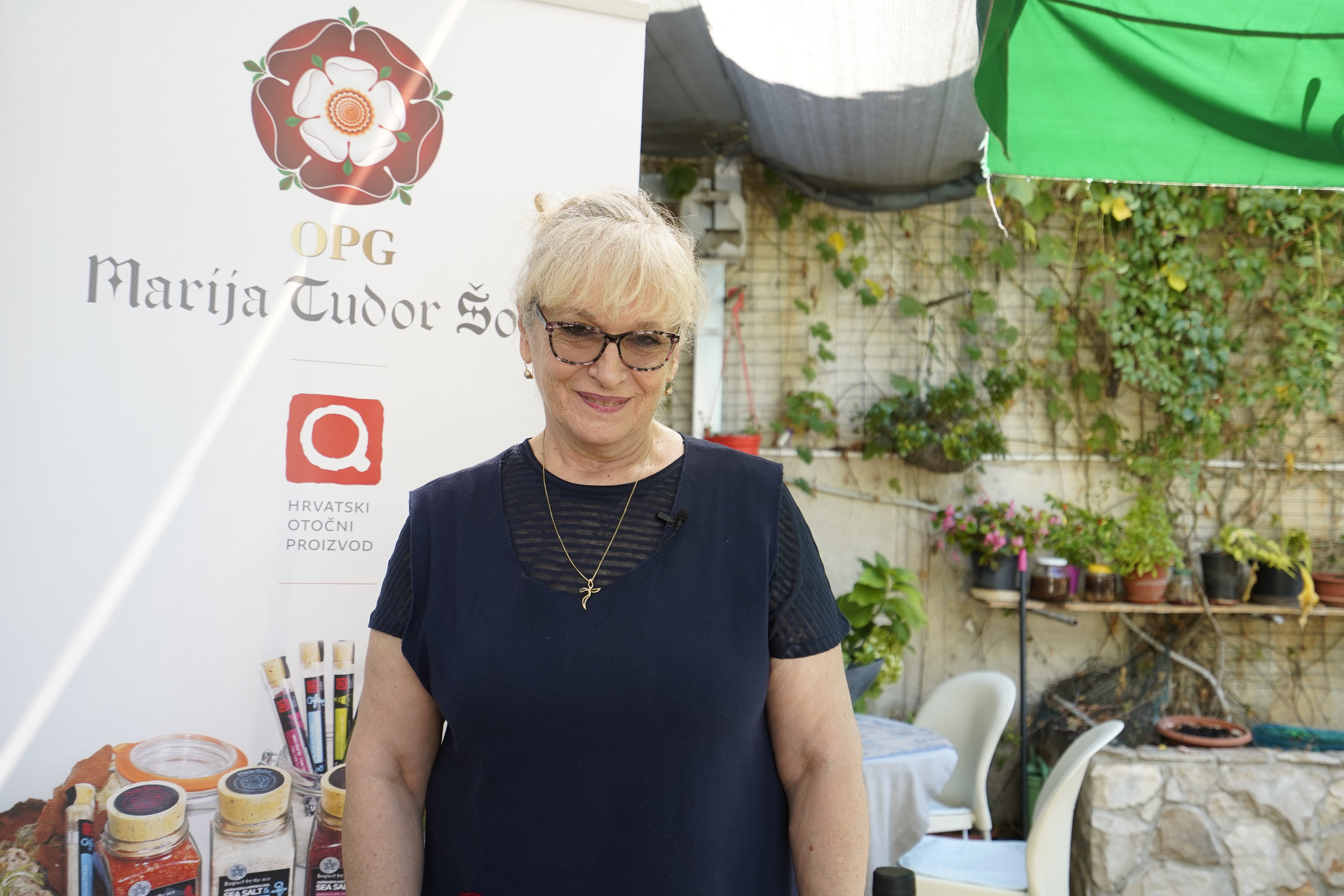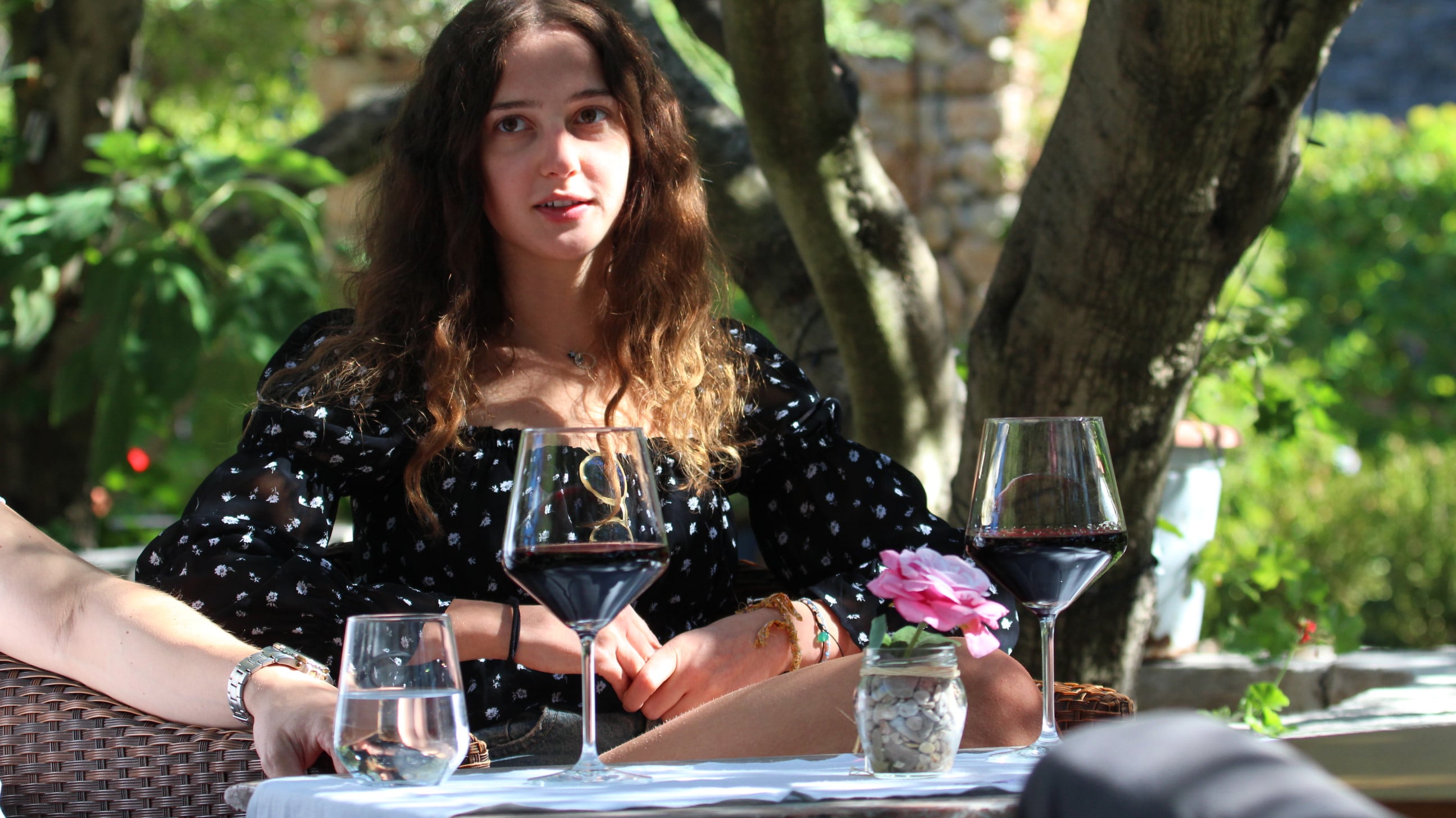ECA Warns of Risk of Delay in EU Funds Absorption
ZAGREB, 26 October, 2021 - The European Court of Auditors (ECA) on Tuesday warned of the risk of delays in the absorption of funding for the 2021-2027 financial period due to a significant increase in funds compared to the previous period.
"In view of the great challenges that lie ahead of us, we must remain even more vigilant about the financial soundness of the EU”, said ECA President Klaus-Heiner Lehne was quoted as saying.
"Over the next seven years, the EU will spend significantly more than in the previous programme period."
During the next seven years, the Union will have €1.8 trillion at its disposal.
In addition to the revised multiannual financial framework (MFF) for 2021-2027, worth €1.1 trillion, this also includes Next Generation EU recovery instruction of €750 billion, in response to the COVID-19 crisis, said ECA President Klaus-Heiner Lehne.
The European Court of Auditors on Tuesday released the annual report concerning the financial year 2020, the last year of the 2014-2020 period.
Since the funds from the previous programming period are being absorbed more slowly than planned, due to a late start of the implementation of the programme, auditors warn of the risk of this occurring again in this financial period.
By the end of 2020, the last year of the current seven-year budget, only 55% of the committed funds for the 2014-2020 period were absorbed. That led to an increase in outstanding commitments, which reached €303.2 billion by the end of 2020. The funds for this programming period can be used by the end of 2023.
Croatia doing well in terms of committed funds
Croatia is doing well in terms of committed funds, and by the start of October 2021 it had over 122% of committed funds compared to its allocation. However, it was one of the countries with the lowest absorption rate, with only Italy behind it, and Spain performing slightly better.
Croatia has a total of €10.731 billion at its disposal from the total envelope of the European Structural and Investment Funds (ESIF), and about 47% of that amount was absorbed by the end of 2020, while another €5 billion is to be disbursed.
Croatia's ECA Member, Ivana Maletić, said that as a new member Croatia hadn't had enough projects prepared in its first years of membership, but everything was speeding up now and a big jump in absorption was expected now. She cited as an example the construction of the Pelješac Bridge, which will increase absorption by as much as 20% once the funds for this year and next are disbursed.
The slowdown was partly due to coronavirus, and in Croatia also due to earthquakes, so some projects could not begin, Maletić told a press conference.
The ECA points out at its web site that "Member States’ absorption of the European Structural and Investment (ESI) Funds has continued to be slower than planned."
"By the end of 2020, the final year of the current seven-year budget, only 55 % of the agreed EU funding for the 2014-2020 period had been paid out. This has had the effect of inflating outstanding commitments, which reached €303.2 billion by the end of 2020, the equivalent of nearly two annual budgets."
Losinj Hotels Take Home Awards for Wellness and Spa Offers
October the 26th, 2021 - Losinj hotels have been recognised once again for their wellness and spa offers, putting this beautiful part of Croatia firmly on the radar of those tourists who opt for that type of holiday, and there are more and more of them.
As Poslovni Dnevnik/Marta Duic writes, Losinj's popular Hotel Bellevue, a member of the luxury hotel brand Losinj Hotels & Villas, has climbed to the very ''top of the world'' when it comes to spa and wellness offers this year. The Spa Clinic Hotel Bellevue is the winner of the World’s Best Hotel Spa 2021, which has been being awarded by the World Spa Awards for six years in a row now with the aim of promoting and rewarding quality in the increasingly popular spa and wellness industry.
This Losinj hotel also won at the Europe’s Best Hotel Spa 2021 and Croatia’s Best Hotel Spa awards. In the same selection, Vitality Punta from Veli Losinj, another hotel from the Jadranka group, won the title of the best wellness hotel in all of Croatia.
For Losinj hotels, these aren't the only awards in tourism which were won throughout the month of October. As part of the fourteenth International Conference on Cultural Tourism in Europe, which was held on Thursday in Athens, the project of sustainable cultural tourism from Nerezinac camp, also in Losinj, was awarded.
At that conference organised by the European Cultural Tourism Network, this Losinj project won second place in the category "Archaeological Sites and Museums as Cultural Tourism Attractions".
The first place also went to another incredible Croatian museum, the Museum of Krapina Neanderthals and the Husnjakovo site, while the third place went to the City Museum of Zenica. According to the Tourist Board of the town of Mali Losinj, awards were given to various projects from all over Europe in five more categories.
Among the winners were other impressive Croatian museums, for example, the first place in the category "Walking Tourism and Slow Travel - Synergies with Cultural Tourism" was won by the Rab Archaeological Museum, and the Zagreb Chocolate Museum was also a hit.
For more, make sure to check out our dedicated business section.
Less Waste, More Recycling, Croatian South Still Lagging Behind North
October the 26th, 2021 - The Croatian south is still very much lagging behind the northern part of the country in terms of waste disposal, recycling and proper management.
As Poslovni Dnevnik/Darko Bicak writes, the circular economy, ie waste management so that it is almost all completely recovered and reused as a raw material or fuel, has become a principle of development of the European Union's economy, which Croatia is trying to follow.
Ambitious EU targets call for at least 70 percent of municipal waste to be recycled by 2030, and for 2025 to ban the disposal of recyclable waste - plastics, metals, glass, paper, cardboard and biodegradable waste.
Problems in Zagreb...
Although official figures show that slightly more than 40 percent of waste is collected separately in Croatia, which is a prerequisite for recycling, skeptics say that less than 10 percent is actually recycled and recovered. Problems in the waste collection system are ubiquitous in Croatia, which we're able to witness every day with the example of Zagreb.
However, the current report on municipal waste from the Ministry of Economy and Sustainable Development says that in 2020, 1.69 million tonnes of municipal waste was generated, or 418 kilograms per capita. This is a decrease of 6.5 percent compared to the year before, and the most significant reductions were recorded for mixed municipal and packaging waste.
According to the competent ministry, one of the significant factors that influenced the reduction of the total amount of generated municipal waste is the coronavirus pandemic, which significantly reduced the work of the service sector in 2020 - closing restaurants, less tourism, a huge reduction in the number of overnight stays, etc.
The continuous implementation of educational activities aimed at raising citizens' overall awareness of their role in generating and preventing waste has additionally contributed to all improvements. At the same time, investments were made in the infrastructure for the separate collection of municipal waste, such as containers for separate collection from the doorstep, the construction of recycling yards, the installation of containers for separate collection in public areas, the procurement of vehicles and the construction of more sorting plants.
The share of mixed municipal waste in the collected stood at 59 percent - 998,807 tonnes. The share of separately collected municipal waste was 41 percent (694,160 tonnes). Although this is a negligible increase of 4 percent, it still lags behind the estimated planned dynamics.
Back in 2020, there was also an increase in the number of local self-government units (LGUs) in which the separate collection of biowaste from communal waste was carried out. This activity was carried out in 35 percent of local self-government units, ie 192 of them.
''This mainly regards biodegradable waste from kitchens and canteens and waste from gardens and parks. This is 118,692 tonnes or 24 percent of total generated municipal biowaste. Compared to pre-pandemic 2019, this represnts an increase of 22 percent, which still lags behind the plan for achieving the national goal,'' they emphasised from the relevant ministry.
Recycling yards reported a total of 60,146 t of municipal waste, which is 25 percent more. Bulky waste (42 percent), wood waste (22 percent) and biowaste (8 percent) were collected the most. The highest rates of recovery of municipal waste collected under the organisation of local self-government units were recorded in Medjimurje County (47 percent), Koprivnica-Krizevci County (40 percent), Varazdin County (37 percent) and the City of Zagreb (36 percent), and the lowest was recorded in Lika-Senj County and Zadar County, with 3 percent each. This means that the Croatian south is still lagging quite a lot in this regard.
64,010 tonnes of municipal waste was received for composting in ten composting plants, and although the amount of compost didn't change when compared to 2019, there was a significant increase in the quantities received by 57 percent. During 2020, a total of 941.3 thousand tonnes or 56 percent of the total generated municipal waste ended up in landfills.
In addition to 56 percent of municipal waste being sent for disposal and 34 percent sent for recovery, 9 percent of municipal waste was sent to mechanical-biological waste treatment plants (MBO plants), while the remaining 1 percent went to some other pre-treatment procedures.
For more, check out our lifestyle section.
Croatian 2022 Tourist Season Threatened by Shortages, Price Hikes
October the 26th, 2021 - The Croatian 2022 tourist season could be threatened by something quite different than a global public health crisis, as was the case in 2020 and to a certain extent this year.
As Poslovni Dnevnik/Marija Crnjak writes, the euphoria of a remarkably successful summer season this year has lasted for just a short time, after the pandemic, the next crisis looks set to hit tourism and is equally uncertain. Global increases in prices and the shortages of energy, goods, materials and products now pose new and very serious threats to the tourism business, and the consequences are only just beginning. The Croatian 2022 tourist season could now be more problematic than we thought.
So far, the rent a car business has been hardest hit, and it isn't much easier for agencies and the hospitality and catering sector, which not only cannot plan any of their prices, but also don't know whether they'll be able to deliver their services at all to a market in high demand by the time spring rolls around. If tourists manage to stay in hotels, eat dinner in a restaurant and rent a vehicle, in 2022 they could be paying very dearly for it.
"In normal years, this would be a period when deals are contracted with suppliers and customers, between large travel organisers, agencies, hotels and camps, package deals are defined, the need for transportation services are looked into, cars are procured for rent. The coronavirus pandemic shook up these processes, so there was no demand and it all came down to survival and cutting costs, and now we have a situation where we suddenly received demand, but it's very difficult to put together an offer,'' Boris Zgomba, the CEO of Uniline, the largest Croatian agency, warned.
Tourism across all segments will be equally affected by rising prices and delays in deliveries, ie shortages. As tourism is activity that unites a number of other industries, everything from food and beverages to transfers, charters, buses, hygiene products, packaging, furniture, and even basic things like towels will be called into question.
Since the winter is on its way to Croatia, for some these issues won't manifest themselves before the spring, and it's difficult to plan what the situation will be like by then for a multitude of reasons, epidemiological ones included. The primary issue here is that planning is precisely the key word for this sector, mostly in the pricing policy segment.
Service sellers are currently having the biggest problems because they have a situation where prices are changing on a daily basis, which means that the contracted prices, which was defined in normal times, is no longer realistic. They have no input for pricing, and if they try to protect themselves and set a price too high, they're at great risk of not being competitive. And if we want our guests to come on April the 1st and start with the pre-season, we should now have a calculation for our partners, so that they can form their own prices,'' explained Zgomba.
At the same time, from conversations with major travel organisers, it is learned that the demand for the Croatian 2022 tourist season will be high. Transport is a particularly important and very questionable thing for tourism in the coming period, either in terms of public transport or vehicle rental. At the moment, it's uncertain how the offer and prices of airlines, from scheduled flights to charters, as well as buses and transfer organisers, will move in the weeks and months ahead of us.
Kresimir Dobrilovic, the founder and director of Carwiz, revealed that due to the supply crisis across the entire European market, prices are now not being negotiated at all. Winter will pass in relative peace due to reduced demand, but spring is already very close.
"Vehicle importers don't have concrete information for next year, and those who will have cars are already announcing higher prices, which entails higher prices for all other vehicle purchase costs. News like this about the closure of the Skoda plant in the Czech Republic worries us even more. The prices of car rental services have skyrocketed and this is not good for a market where there's now demand. Many car rental companies are turning to the alternative of using more used cars in the fleet, but this won't help us much because there aren't enough of these vehicles either. The same is true throughout Europe,'' Dobrilovic said.
"Now we have a situation where prices change three to four times in one day. That's why it's very difficult to say what the rental prices will be in 2022, but we can expect them to be much different than they were before the pandemic,'' said the owner of Carwiz.
For more on the Croatian 2022 tourist season, check out our dedicated travel section.
Croatian IT, Food, Construction Companies Interested in Business with Turks
October the 26th, 2021 - Numerous Croatian IT companies, as well as several from other sectors, including food and construction, are among the most interested in working with the Turks.
As Poslovni Dnevnik/Marija Brnic writes, the fact that Turkey is an increasingly important economic partner for Croatia has been well and truly confirmed by the data which shows that more than 700 companies are participating in the latest cycle of B2B talks that are being held with Turkey as part of the Croatian Chamber of Commerce's Go Global - Go Virtual project. The talks will run until October the 29th, 2021, and so far 543 companies from Croatia and 161 from Turkey have been involved.
The structure of interested companies that are looking for partners for cooperation is interesting, because the largest number, every seventh, comes from the Croatian IT sector, food and beverage production, and the construction sector, in which companies from the two countries have been cooperating.
About 60 companies come from the production of machinery and equipment, and the metal industry. About 50 companies dealing with automation and robotics, as well as electronics, are also discussing cooperation, but all other production sectors, as well as services, from consulting to tourism, are also quite strongly represented.
There are slightly less than 29 domestic enterprises interested in cooperation in the field of waste and recycling, and this interest is interesting because over more recent years this activity has raised Croatian exports to Turkey to absolute record levels.
This year, more precisely in the first seven months of it, exports almost reached the total realisation from last year, which was also a record export year on the Turkish market, in which a total of 183 million euros worth of goods were placed even in the conditions of the ongoing global coronavirus pandemic.
For more, make sure to check out our dedicated business section.
Are You Looking For An Authentic Mediterranean Experience in Croatia?
November 4, 2021 - The Mediterranean Diet. It goes beyond food. It is based on social harmony and family time. It's about daily meetings around the table, special events, and festivities, sharing the cooking time and traditional recipes passed down through families.
The Adriatic Sea is the northernmost arm of the Mediterranean Sea. And, like all Mediterranean countries, the Croatian coast has a unique way of life that has long been hailed as being immensely healthy, not just for the body, but also for the mind and soul. This lifestyle is based on traditional approaches and attitudes to the world around us, with an increasingly modern twist on these traditions to provide a lifestyle that is innovative, smart, and sustainable. Of course, given the islands and coastal location, this lifestyle utilises the abundance that the Adriatic Sea has to offer, including sailing!
Authentic Experiences
We often get asked by guests and visitors to Croatia, especially in the planning stages, where they can find an “authentic Mediterranean” experience. Many who visit Croatia to charter yachts and go on sailing holidays are looking for those home-spun, warm, and welcoming experiences. And yet the principles of this kind of life go much deeper than a simple catchphrase or dinner/lunch experience that tends to be very much over-used in many tourism sectors.
Add to that the fact that Mediterranean food usually gets the spotlight when talking about a Mediterranean Diet and there are so many other nuances to that here in Croatia. To really see the Mediterranean diet when you're visiting the islands, you need to adopt one of its key principles: spend time and observe. The Mediterranean Diet is all around!
Project MD Net - Mediterranean Diet
It was really interesting to spend the last month working with the Public Institution RERA S.D. (the regional development agency Split-Dalmatia County) on their project MD Net to document and promote ‘the Mediterranean Diet, using the word “diet” in its original form where it refers to not just what foods are eaten, it also encompasses aspects like lifestyle, activities, culture, people, exercise and drink. Learning about all of the different facets that are covered under the umbrella Med Diet, how different families from different parts of the coast of Croatia embody the lifestyle, and how deeply ingrained this heritage is. It really gave us an intimate glimpse into the lives of many people that we have worked with within the summer season for years!
The Concept - Mediterranean Diet
We had a chat with Michael Freer and Nick Hathaway from Hashtag Content Agency, the team that won the contract to put together the visuals for this project, to see what they had to say about this “Mediterranean Diet” concept.
What is the Mediterranean Diet?
Let's establish from the beginning exactly what the Med Diet is. Something we have become a lot clearer about over the past two months.
IT IS NOT a “diet” where the end goal is to simply lose weight.
IT IS a valuable cultural heritage that represents so much more than a simple nutritional, rich and healthy pattern.
IT IS a lifestyle, daily practices, a sustainable way of living.
IT IS beyond food, based on social harmony and family time.
IT IS about protecting & respecting biodiversity and ecosystems.
IT IS daily meetings around the table, special events, and festivities
IT IS sharing the cooking time and traditional recipes passed down through families and generations.
IT IS all within the framework of an active life, including work, outdoor leisure activities, and adequate rest.
The Project - The Med Diet Declaration
The Med Diet Declaration, according to the Interreg MD.net website, aims to achieve greater visibility and significance of the Mediterranean diet across all sectors, such as agriculture, food production, health, culture, sport, education, economy, tourism, rural development, and sustainability. The project is an opportunity for local and regional actors to demonstrate the crucial role they can play in strengthening the economic potential of the Mediterranean diet in rapidly changing landscapes and lifestyles, for them to highlight the active role they play in DEFENDING, PRESERVING and PROMOTING the Mediterranean diet.
Applications
For the first round of applications and to get the project up and running, individuals, family-run small businesses and established local enterprises were encouraged to apply to be featured on film in the five 10 minute episodes. Applications submitted were assessed on their Mediterranean significance and on how their work highlights the Mediterranean diet and promotes its values. In their applications they presented:
- the relevance of their activity, services and/or products in helping to promote the significance and lifestyle of the Mediterranean diet;
- their link with key events, informative and educational activities, staff training, and any other activity that seeks to raise awareness of the significance and lifestyle of the Mediterranean diet;
- their specific role in supporting, developing, or promoting common values that underpin the Mediterranean diet and its lifestyle.
Five Key Areas
The philosophy of the Mediterranean Diet was split into five key areas of focus:
Food - The most commonly talked about aspect of the Mediterranean diet. From buying or growing, to preparing and eating, food is so much more than just calories. It is a seasonal and colourful feast for the eyes, a way of bringing people together, a method of healing, and a practice that ties us to past generations.
Drink - Drinks flow freely in the Mediterranean diet. And for every time of day and activity, there is a drink to accompany it. Yet it isn't necessarily the drink itself that is important, but more so the way it's prepared and consumed, with care, attention to tradition, and in the right company.
Activity - Enjoying fresh, organic food and locally made drink take work. Cultivating your own fruit and vegetables, being a part of a tight-knit community, living harmoniously with the natural elements surrounding us. All very Mediterranean and all things that take time, effort and discipline. They call it the outdoor gym, where you get to use and flex your muscles all year round.
Community - Family. Friends. Classmates and colleagues. Children, families and old people. People to spend time with. People to help out in times of need and to celebrate within times of abundance. And despite this day and age of technology and everything going online, you can still visit any town square to really experience the reality of how important community still is within the Mediterranean diet.
Lifestyle - This key area of the Mediterranean Diet is the silent thread that ties everything together. Founded on principles of slow living, the lifestyle emphasis is on quality, not quantity, on seasonal cycles, and on sustainable practices that are handed down from generation to generation.
The Endorsers - The Med Diet Declaration

OPG Marija Tudor Sore, Milna on Island Hvar
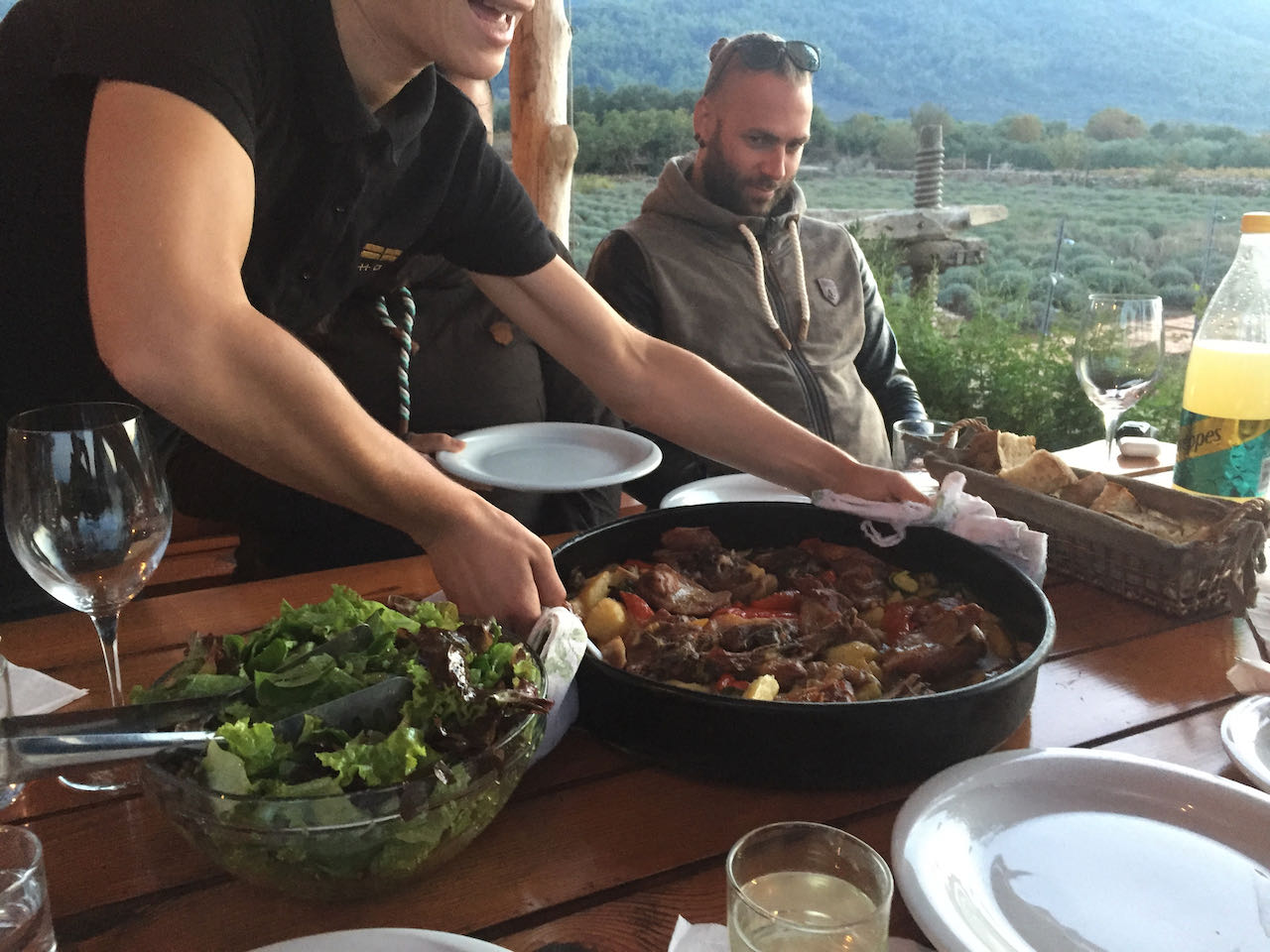
Restaurant Trica Gardelin, Vrboska
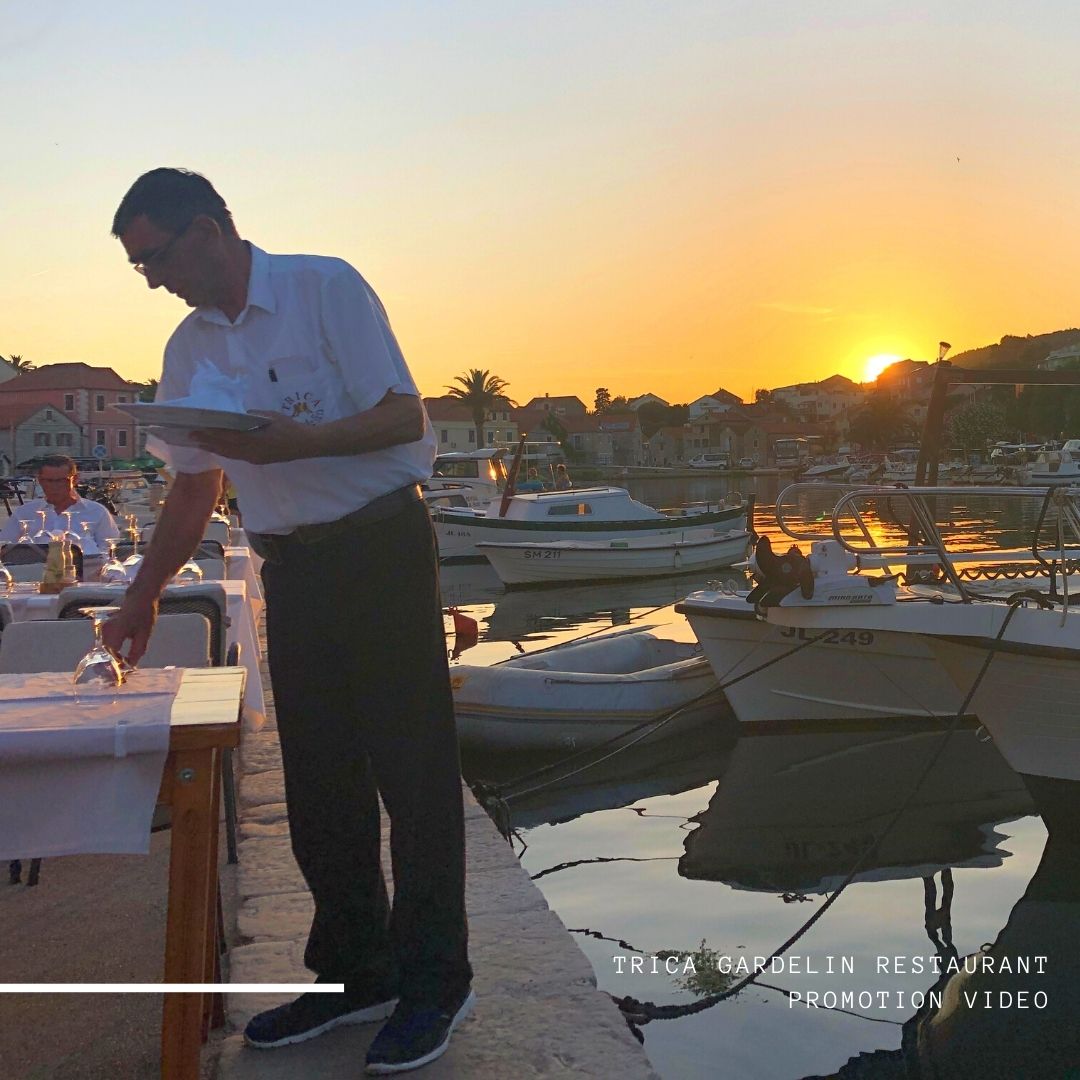
Srednje škole, Jure Kaštelan, Omis
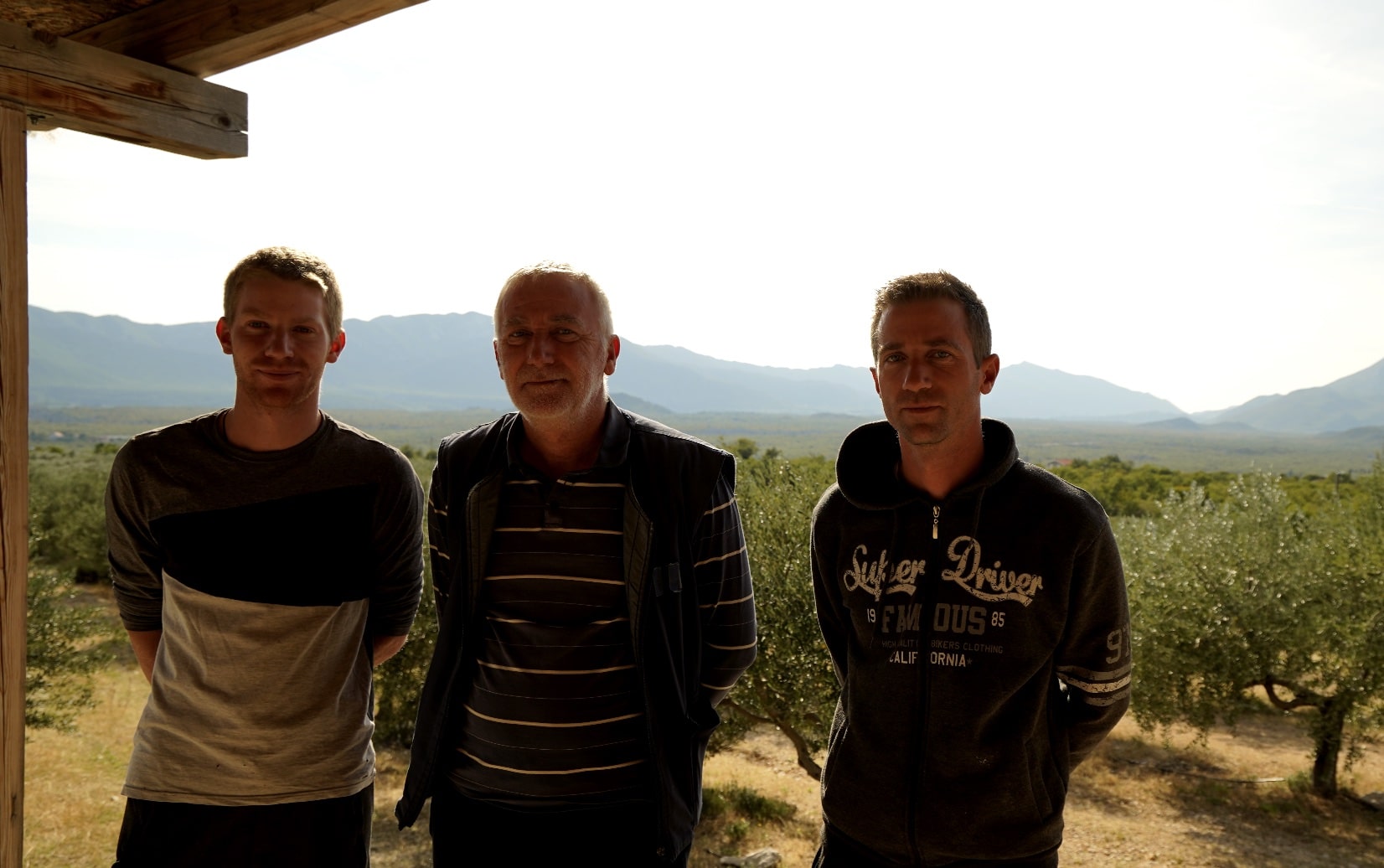
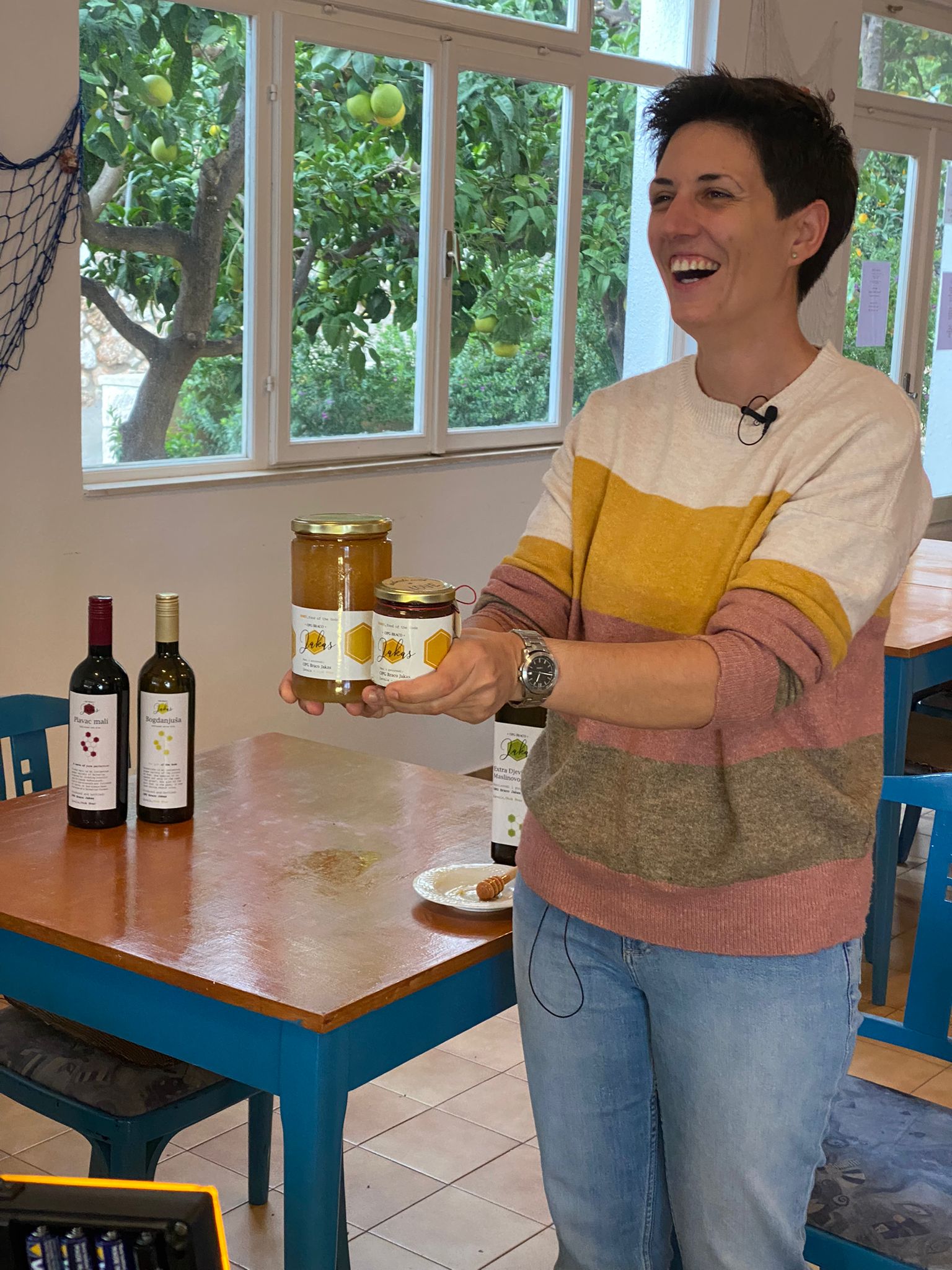
These finalists are all involved in tourism in one way or another. They either sell traditional products, serve traditional foods or offer traditional services to foreign and local tourists, helping to spread the Mediterranean Diet Lifestyle with the world. They live the Med Diet values.
The Future - The Med Diet Declaration
While the inital launch of the project here in Croatia is being organised for the end of November, all individuals, family-run small businesses and established local enterprises are still being encouraged to apply to be included as endorsers of this Med Diet Declaration Brand. More on how to join the Med Diet Declaration as endorsers is found here online.
We are looking forward to experiencing all the above Endorsers have to offer and introducing their products and services to the many visitors for summer in 2022 or even before.
If you have questions on anything sailing in Croatia, feel free to ask below in the comments or check out Total Croatia, Sailing in Croatia: Your One-Stop-Shop for everything sailing.
For more about The Mediterranean Lifestyle and Travel in Croatia follow TCN's dedicated pages - Lifestyle | Travel.
230 Croatian Road Fatalities from January-September 2021, a 20% Increase
ZAGREB, 26 October, 2021 - Croatia's road death toll rose by 37 or 19.2% to 230 fatalities in the first nine months of 2021 in comparison to the corresponding period of 2020, the interior ministry said on Monday.
In the first nine months of 2020 there were 193 fatalities.
Last weekend, from 22 to 24 October, three people were killed in road accidents, while nine sustained serious and five minor injuries.
Nearly 4,500 offences were registered last weekend, and about 10% of them, or 428, were related to driving under the influence of alcohol.
The highest blood alcohol concentration, 4.17 g/kg, was registered in an offender from Varaždin County.
Plenkovic Announces 3 Directions of Fight against Current Pandemic Wave
ZAGREB, 26 October, 2021 - Prime Minister Andrej Plenković said on Monday that the further efforts to contain the current wave of the COVID pandemic would go into three directions: promoting a booster dose, stepping up inspections of application of indoor mask-wearing rule and possibly online teaching for some schools.
After a regular meeting of the leadership of the ruling Croatian Democratic Union (HDZ) on Monday afternoon, Plenković said that Education Minister Radovan Fuchs and local COVID-19 response teams would establish if some of the schools should switch to online teaching and that also the authorities "are thinking of extending the autumn (school) holidays to last the whole week" so as to lessen the circulation of the virus.
He recalled that a whole set of measures and anti-epidemic rules are in effect, however, all of us in the country "seem more relaxed than we ought to be".
Prime Minister called on citizens to get vaccinates, and underscored that nearly 8 in 10 COVID patients on ventilators are unvaccinated.
Commenting on the final guilty verdict in the INA-MOL case under which a former Prime Minister Ivo Sanader was given six years for graft and MOL CEO Zsolt Hernadi two years, Plenković said that the judgement was conducive for Croatia's arguments in the international INA-MOL arbitration process.
He said that the legal representatives had been informed of the verdict and were told to add that to Croatia's documentation.
The premier said that this year's economic growth would be higher than 8% and would thus offset the negative GDP in 2020.
Plenković said that President Zoran Milanović had contacted him about convening a meeting of the Defence Council an added that a meeting of the National Security Council should be convened for the same day.
Commenting on the recent final verdict in the Fimi Media corruption case in which the HDZ was fined and ordered to pay back to the budget HRK 14.3 million, Plenković said that the party would probably paid that money into the budget on Tuesday.
Science Library Zadar Presents the New UNESCO Exhibition
October 25, 2021 - To celebrate the Day of the European Heritage 2021, the Science Library Zadar presented their exhibition "UNESCO's Monuments in the Photo Library".
The exhibition is supported by the UNESCO Department of the Ministry of culture and media of the Republic of Croatia. Thematically, the exhibition is divided into five parts, each showing the UNESCO monuments in Zadar, Šibenik, Trogir, Split and Dubrovnik. The exhibition consists of around sixty photographs that were taken between the second half of the nineteenth century and the seventies in the twentieth century.
You can physically see the exhibition between the 25th and the 30th of October in the Library. However, probably the more exciting piece of information is that the exhibition is also available online. Its virtual form was created in cooperation with the National and University Library in Zagreb. You can access the exhibition here: http://pozdravizhrvatske.nsk.hr/unesco-zkzd/. Unfortunately, the accompanying text is in Croatian, but the photos are accessible to everyone, and worth checking out.
The Library invites the public to take the journey through time and between Zadar and Dubrovnik, a journey of 350 kilometres, to get to know what the UNESCO monuments looked like in the past. The goal is to encourage thinking about the need to evaluate and protect our heritage.
The exhibition shows a small fraction of over 2500 photos digitised by the Library, working with the Ministry of culture and media, Zadar County and the town of Zadar. The project lasted for three years, in the period 2018-2020. The photo library is available in full in the Croatian libraries catalogue and in the digital repository of the Science Library. The completion of this project of the digitalisation of their photos makes the Science Library Zadar the first library in Croatia to present their photo collection through a digital repository.
Initiative Signed for Green Passenger Catamarans
ZAGREB, 25 Oct 2021 - An initiative called "Autonomous electric vessels for smart islands and cities" was signed on Monday with the aim to build 21 green catamarans, watercraft with zero harmful emissions that rely solely on green fuels.
The initiative was launched and signed by Tomislav Uroda, director of the iCat company, Dubravko Majetić, dean of the Zagreb Faculty of Engineering and Shipbuilding, Gordan Gledec, dean of the Zagreb Faculty of Electrical Engineering and Computing, Boris Ćosić, director of the Technology Transfer Centre, and Nedjeljko Perić, director of the Nikola Tesla Innovation Centre.
The initiative envisages building 21 catamarans for 100 to 300 passengers in three sizes. One of each model will be deployed along the Adriatic as part of a pilot project to test the possibilities of seven destinations.
The development of the fleet will require the development of the energy infrastructure for the supply of electric vessels with electricity. The project, therefore, envisages developing charging stations with battery storage and solar power plants. The battery tanks, by connecting to the energy infrastructure, will contribute to the development of smart islands and cities as part of a system of smart grids facilitating the storage and supply of electricity.
The initiative also envisages developing a vessel steering and monitoring system based on progressive methods and artificial intelligence. Vessel monitoring and steering, a robotized system for filling the vessels' energy tanks, and a system of smart high-power charging stations which use energy from renewables represent the backbone of the development and application of modern technical solutions in maritime transport.
Croatian islands are rich in energy sources and can be leaders of the energy transition to a fully carbon-neutral economy by 2050, it was said.
For more made in Croatia news, follow TCN's dedicated page.


